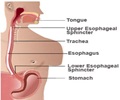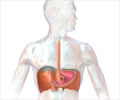
‘Malignancies of the upper aero-digestive tract account for more than 800,000 cancer cases and 360,000 deaths worldwide each year.’
Tweet it Now
"Louisiana Tumor Registry is a contributor of the SEER-Medicare data," said Xiao-Cheng Wu, MD, MPH, Professor and Director of the Louisiana Tumor Registry at LSU Health New Orleans School of Public Health "Without the population-based state registries, such as Louisiana Tumor Registry, we would not have data for such cancer research." The 13,805 cases studied included people who were 66 years and older diagnosed with cancers of the larynx, hypopharynx, oropharynx, tonsil, nasopharynx and paranasal sinuses. The control group, without malignancies of the upper aerodigestive tract, was matched for gender, age group and year of diagnosis. The authors found that the adjusted odds ratios for people who have GERD compared with people without GERD to go on to develop these cancers are 2.86 for larynx, 2.54 for hypopharynx, 2.47 for oropharynx, 2.14 for tonsil, 2.04 for nasopharynx and 1.40 paranasal sinuses.
Mei-Chin Hsieh, PhD, MSPH, Assistant Professor-Research at LSU Health New Orleans School of Public Health, who is very experienced in using SEER Medicare data, analyzed the data.
"This study is a good example of effective collaborations between clinicians and epidemiologists," notes Dr. Wu. "Many clinicians have excellent ideas for cancer research, and we welcome more opportunities to collaborate with them."
Chronic inflammation, a feature of GERD, has been associated with the development of a number of malignancies. A significant association between GERD and esophageal adenocarcinoma has been recognized for more than a decade. Malignancies of the upper aerodigestive tract account for more than 800,000 cancer cases and 360,000 deaths worldwide each year.
Advertisement
Advertisement













